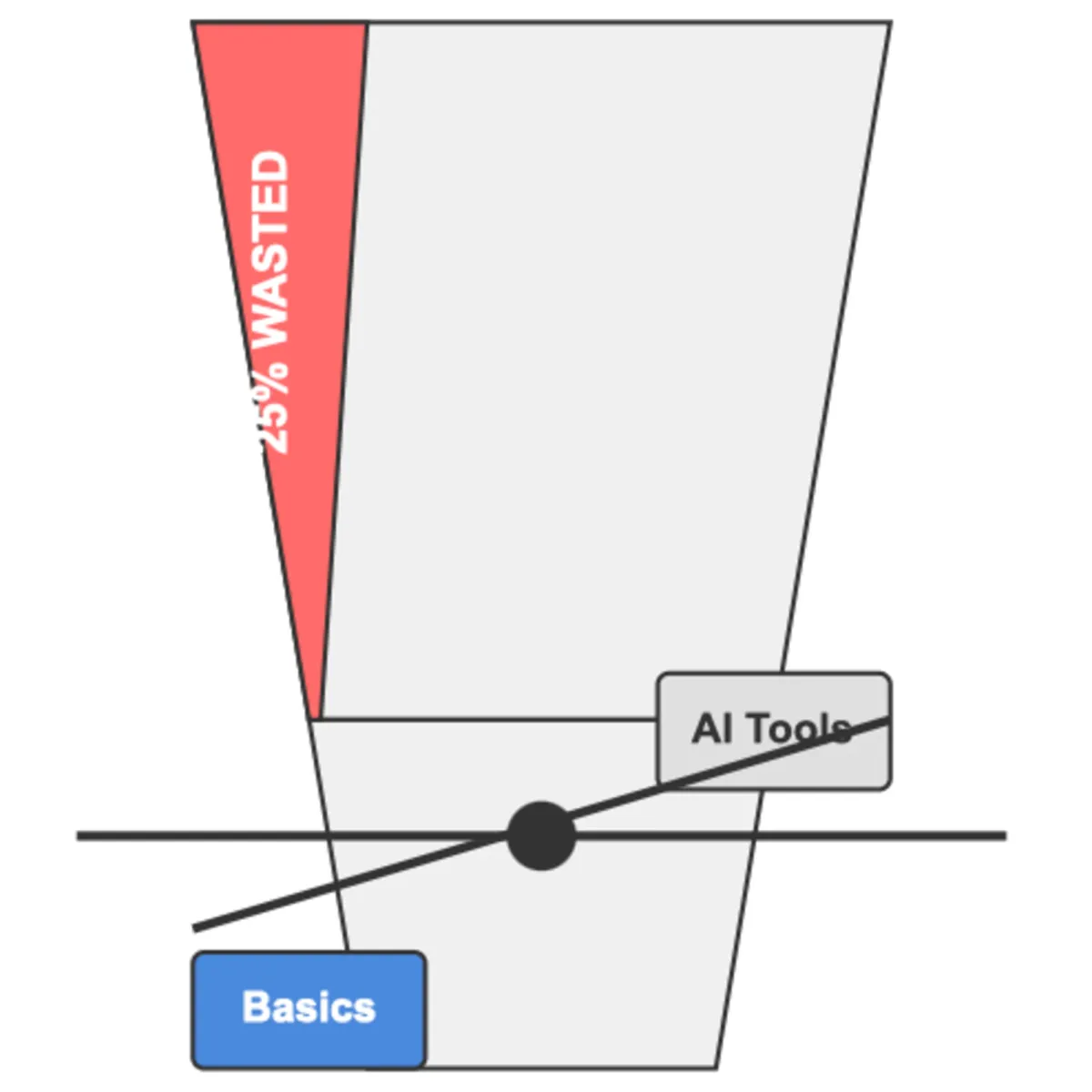
A recent analysis by industry consultant Richard Angel revealed that up to 25% of performance media spend is being misallocated across digital advertising campaigns. The findings, shared on March 24, 2025, highlight persistent challenges in digital marketing execution, even as artificial intelligence features expand across major platforms.
Angel, a Performance Marketing, Retail Media & Martech Consultant, published these observations as part of his ongoing work conducting performance marketing audits and capability reviews for brands. His assessment comes at a time when many organizations are rapidly adopting new platform capabilities without addressing fundamental operational issues.
"In recent projects, I've uncovered up to 25% of performance media spend misallocated or wasted. This is often the result of weak platform knowledge, poor control mechanisms and an over-reliance on historical budget splits rather than current performance," according to Angel.
The audit results demonstrate that many organizations continue to struggle with implementation basics across their digital marketing operations. Common issues include inaccurate conversion tracking, improper technology deployment, and audience configuration problems. These technical shortcomings often remain undetected until external reviews are conducted.
Angel specifically identified several recurring challenges across multiple client engagements. Among the most prevalent issues were "campaigns launched without clear objectives" and "account structures that are outdated or inflexible, limiting scalability." These fundamental problems persist despite significant advancements in platform capabilities and increased investment in digital channels.
The findings also revealed a concerning pattern regarding the implementation of automated features. According to Angel, many organizations have adopted "new AI-driven platform features without the governance, assets, data integrity or brand risk controls needed to use them effectively." This observation highlights the disconnect between technological capabilities and operational readiness within many marketing departments.
Another significant issue identified in the research was "a lack of customer journey consideration and audience-first thinking." This strategic oversight indicates that many organizations remain focused on platform mechanics rather than developing comprehensive audience strategies that align with consumer behavior patterns.
The analysis also examined the role of creative assets in performance marketing campaigns. Angel noted that "creative is still often treated as an afterthought rather than a core driver of performance." This approach results in assets being "reused past their prime, with limited testing or structured refresh cycles."
While platform algorithms can optimize creative elements, the research suggests they should not operate without proper planning and collaboration with creative teams. The lack of integration between creative development and campaign execution was identified as a significant factor undermining campaign performance, with Angel stating that "without this, even well-targeted campaigns underperform."
The operational issues extended beyond campaign implementation to reporting and analytics capabilities. Organizations commonly struggle with establishing "a single source of truth in reporting" and developing "naming conventions that make basic analysis unnecessarily difficult."
Structural issues were also prevalent, with many "performance marketing specialists operating in isolation from each other, other media channels or from product, sales or commercial teams." This siloed approach prevents effective collaboration and limits the ability to develop integrated marketing strategies.
Dan Chorlton, who describes his work as increasing profit for enterprise advertisers, reinforced these findings in his response to Angel's assessment. "Couldn't agree more Richard; governance is essential for success. Make sure all the right brilliant basics are in place, have clear objectives, proper account structures (with naming conventions) and definitely spend more time on your creative!" Chorlton wrote.
The research indicated that these challenges exist regardless of whether media is managed internally or by external agencies. This suggests that the issues are systemic across the industry rather than specific to particular organizational structures.
Angel characterized these foundational elements as "Brilliant Basics," noting that while the term "might sound simplistic, it remains an important indicator of whether performance marketing is set up to deliver value." His analysis concluded that "standards, structure and proper governance shouldn't be optional - they're what make the channel accountable, scalable and effective."
The implications of these findings are significant for organizations investing in digital marketing. With up to a quarter of media spending potentially being wasted due to implementation issues, there are substantial financial incentives for addressing these challenges.
The research also suggests that technological advancements alone are insufficient to improve marketing performance without corresponding improvements in operational capabilities. This contradicts the common industry narrative that new technologies automatically lead to enhanced results.
The timing of these observations is particularly relevant given the rapid expansion of artificial intelligence features across major advertising platforms. While these capabilities offer potential performance benefits, Angel's findings indicate that many organizations lack the foundational elements necessary to utilize them effectively.
Several industry professionals engaged with Angel's analysis, highlighting its relevance to current market conditions. Prakash Patel, who describes himself as a Human Focused Marketing Executive & Business Strategist, suggested establishing "a Consultancy called the #DOME - Department of Marketing Efficiency" in response to the findings.
The research also prompted Chorlton to reference his own work on naming conventions for paid search, indicating that standardization remains an ongoing challenge for many organizations. His guide aims to address one specific aspect of the "Brilliant Basics" identified in Angel's assessment.

